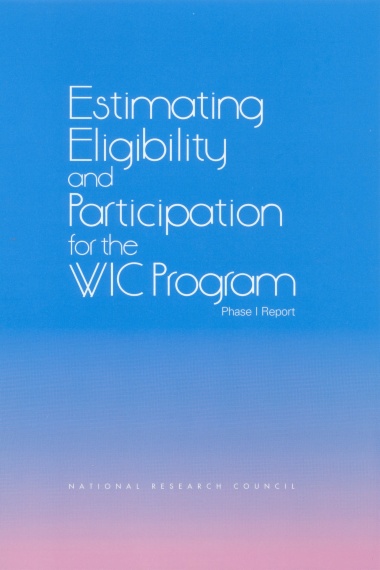

Each year the U.S. Department of Agriculture (USDA) must estimate the number of people who are eligible to participate in the Special Supplemental Nutrition Program for Women, Infants, and Children (WIC). These USDA estimates have come under critical scrutiny in part because the number of infants and postpartum women who have actually enrolled in the program has exceeded the number estimated to be eligible by as much as 20 to 30 percent. These high "coverage rates" have led some members of Congress to conclude that some people who participate are truly ineligible, and that funding could be reduced somewhat and still meet the needs of truly eligible persons who wish to participate. But some advocates and state WIC agencies believe that the estimates of the number of eligible persons are too low and more people who are eligible and want to participate could do so.
In response to these concerns, the Food and Nutrition Service (FNS) of the USDA asked the Committee on National Statistics of the National Research Council to convene a panel of experts to review the methods used to estimate the number of people nationwide who are eligible and likely to participate in the WIC program. The panel's charge is to review currently used and alternative data and methods for estimating income eligibility, adjunctive eligibility from participation in other public assistance programs, nutritional risk, and participation if the program is fully funded.